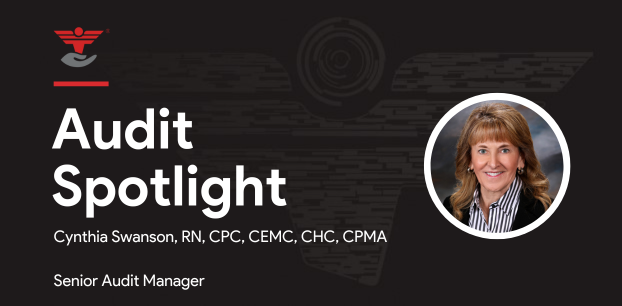
Egregious Billed Charges for CRNA Services
Background
ClaimDOC’s comprehensive line-by-line review of claims uncovers errors that basic claim repricing and auto-adjudication does not catch, leading to greater savings for health plans and its plan members. Our audit team analyzes all types of healthcare claims for a variety of potential concerns including excessive usual and customary charges, duplication of claims, incorrect coding, unbundling of services and many others. Our claims review is not intended to impact care decisions or medical practice.
In this Claims Audit Spotlight, we focus on egregious charges for anesthesia services reported/billed on the CMS-1500 claim form/electronic equivalent.
As healthcare costs continue to climb an upward slope, an escalated need exits for closer analysis of healthcare claims to identify egregious charges, improper medical coding and billing errors and associated improper claim payments.
Anesthesia Services and Reimbursement
Anesthesia is used to block pain, relax, or control how awake a patient is. It is used during procedures, surgeries and/or may be used in other instances. Anesthesia is often provided by an anesthesiologist, a certified registered nurse anesthetist (CRNA) or anesthesiologist assistant (AA). The cost for anesthesia is based on several factors. Charges are often reported/billed and are paid separately from the related procedure/surgery (facility and other professional service charges).
Anesthesia reimbursement is generally calculated using the anesthesia CPT code base unit, plus anesthesia time (minutes), multiplied by the applicable anesthesia conversion factor. Anesthesia modifiers also influence pricing.
Each anesthesia CPT procedure code (00100 to 01999) has an assigned anesthesia base unit. Base unit means the value for each anesthesia code that reflects all activities, other than anesthesia time. These activities include usual preoperative and postoperative visits, the administration of fluids and blood incident to anesthesia care, and monitoring services.
Anesthesia time as defined by Medicare, means the time during which an anesthesia practitioner is present with the patient. It starts when the anesthesia practitioner begins to prepare the patient for anesthesia services and ends when the anesthesia practitioner is no longer furnishing anesthesia services to the beneficiary, that is, when the beneficiary may be placed safely under postoperative care. Anesthesia time is a continuous time period from the start of anesthesia to the end of an anesthesia service.
Anesthesia practitioner, for the purpose of anesthesia time, means a physician who performs the anesthesia service alone, a CRNA who is not medially directed who performs the anesthesia service alone, or a medically directed CRNA. HCPCS anesthesia modifiers are required for reporting/billing to indicate the type and level of involvement of the anesthesia provider(s).
The anesthesia conversion factor used to compute allowable amounts for anesthesia services under CPT codes 00100 to 01999 is specific to the date of service and the anesthesia provider’s locality where services are performed.
Case Scenario One
A CRNA in Georgia billed for anesthesia services on the CMS-1500 claim form/electronic equivalent. The anesthesia CPT code reported/billed was 00812, defined as anesthesia for screening colonoscopy procedure with modifiers QZ, QS, and P2. The claim listed the place of service code as 11 – office and the primary ICD-10-CM diagnosis code of Z12.11 – encounter for screening for malignant neoplasm of colon.
ClaimDOC’s auditor’s eyes questioned the charge of $15,000.00 for the reported 15 minutes of monitored anesthesia care services.
CRNA Claim – Total Billed Charges $15,000.00
ClaimDOC pricing – $105.70 based on Medicare’s anesthesia reimbursement formula, with markup
Plan Savings: $14,894.30
Percentage of Savings: 99%
Case Scenario Two
The same (referenced above) certified registered nurse anesthetist (CRNA) in Georgia billed another claim for anesthesia services on the CMS-1500 claim form/electronic equivalent. The anesthesia CPT code reported/billed was 00812, defined as anesthesia for screening colonoscopy procedure with modifiers QZ, QS and P2. The claim listed place of service code as 11 – office and the primary ICD-10-CM diagnosis code of Z12.11 – encounter for screening for malignant neoplasm of colon.
ClaimDOC’s auditor’s eyes questioned the charge of $20,000.00 for the reported 20 minutes of monitored anesthesia care services.
Anesthesia Claim – Total Billed Charges $20,000.00
ClaimDOC pricing – $113.63 based on Medicare’s anesthesia reimbursement formula, with markup
Plan Savings: $19,886.37
Percentage of Savings: 99%
The Takeaway
FAIRHealth cost estimates for anesthesia for exam of colon using and endoscope, CPT code 00812, range from $415.00 to $1,102.00 in the state of Georgia, depending on if In-Network or Out-of-Network.
Egregious anesthesia charges of $15,000.00 and $20,000.00 for screening colonoscopy procedures were identified on the above claims. Egregious charges and the improper reporting of services, coding/billing errors can complicate matters for members to understand their bills and payments, impact the collection of patient balances, build a reputation of practitioners charging high fees, create burdens for patients having no insurance and a host of others.
Given the volume of healthcare claims that are reported/billed each day by providers/suppliers, medical bills errors and egregious charges are alarmingly common and lead to abuse, waste and fraud.
To assist and help avoid surprise medical bills and high out-of-pocket medical costs determine:
- Whether the anesthesia practitioner furnishing the care is in or is out of the plan’s network
- How much the anesthesia provider will charge, and
- How much your plan will cover.
When an individual receives a healthcare bill that appears questionable/inappropriate, an inquiry to the provider and/or health plan should be made to obtain an explanation of the service(s) and corresponding charges.
Our goal at ClaimDOC is to use benchmark charges and costs nationally to negotiate fair and ethical payments. Our high-quality and expert review of claims identifies and prevents improper medical claim payments and maximizes long-term cost savings opportunities. Employers turn to us seeking to establish fair reimbursement rates for their plans allowing them to save money and provide richer benefits to their employees. A win-win for everyone.